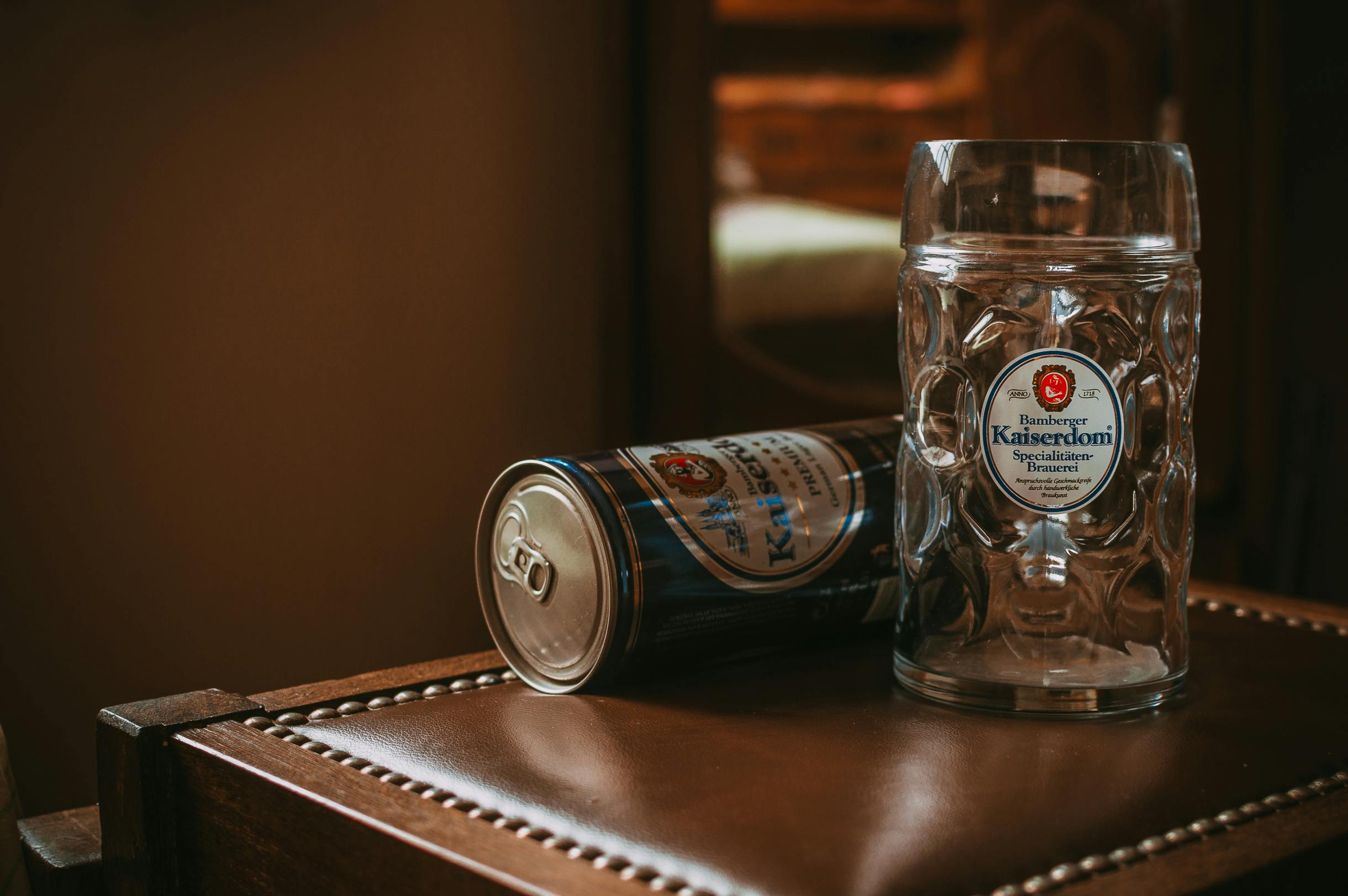If you’ve recently had your wisdom teeth removed, you may be wondering when you can start drinking alcohol again. The answer depends on the type of surgery you had, how quickly you heal, and your doctor’s recommendations. Read on to learn more about when it’s safe to drink alcohol after wisdom teeth surgery and what precautions should be taken.The best time to drink alcohol after wisdom teeth surgery is when the patient has fully recovered from the procedure and feels comfortable doing so. The patient should wait until they no longer have any pain, swelling, or bleeding in the area where the wisdom teeth were removed. It is also important to wait until all medications prescribed for recovery have been taken as instructed. Additionally, it is recommended that patients wait at least 48 hours after surgery before consuming alcohol.
How Long Should I Wait Before Drinking Alcohol After Wisdom Teeth Surgery?
It is generally recommended that you wait at least two weeks before drinking alcohol after wisdom teeth surgery. This is to allow the area to heal properly and to reduce the risk of infection or other complications. During this time, it is important to follow your dentist’s instructions regarding care and medication, in order to ensure a successful recovery.
Alcohol can interfere with pain medications prescribed by your dentist, so it is important to avoid drinking alcohol while taking these medications. Additionally, drinking alcohol can also dehydrate you, which can lead to dry sockets and other issues. Therefore, it is important to drink plenty of fluids during your recovery period and avoid alcoholic beverages until your mouth has healed completely.
It is also possible that drinking alcohol may cause prolonged bleeding after surgery, so it is best to err on the side of caution and wait until your dentist has given you the all-clear before consuming any alcoholic beverages. Your dentist may also instruct you not to drink for a specific amount of time after surgery as part of their post-operative instructions.
Finally, it’s important to note that while waiting for your mouth to heal following wisdom teeth surgery, you should avoid any activities that increase the risk of infection or trauma in the area. This includes smoking, using straws or spitting forcefully – all of which could delay healing and put you at risk for further complications.
In short, it is best practice to wait at least two weeks before consuming any alcoholic beverages after wisdom teeth surgery in order for a successful recovery. Be sure to follow all instructions given by your dentist regarding postoperative care in order to minimize any risks associated with drinking alcohol too soon after this type of dental procedure.
What Happens if I Drink Alcohol Too Soon After Wisdom Teeth Surgery?
Drinking alcohol too soon after wisdom teeth surgery can cause serious complications. The recovery process following the extraction of wisdom teeth can take several days, and during this time it is important to follow your dentist’s instructions. In general, you should avoid drinking alcohol for at least 24 hours after receiving wisdom teeth surgery. This is because drinking alcohol may increase the risk of bleeding and slow down your body’s healing process. Additionally, drinking alcohol too soon after surgery may increase your risk of developing an infection or experiencing other complications that could delay your recovery.
It is also important to note that consuming alcoholic beverages while taking pain medications can be very dangerous. Many pain medications interact with alcohol, making them less effective or even toxic when combined. If you have recently undergone wisdom teeth surgery, it is best to avoid drinking alcohol until your dentist has given you the okay to do so.
The best way to ensure a safe and speedy recovery from wisdom teeth surgery is to follow your dentist’s instructions closely and avoid consuming any type of alcoholic beverages while taking pain medications. If you have any questions or concerns about drinking alcohol after receiving wisdom teeth surgery, it is important to speak with your dentist for more information about potential risks and complications associated with consuming alcoholic beverages too soon after the procedure.
What Are the Risks of Drinking Alcohol After Wisdom Teeth Surgery?
Drinking alcohol after wisdom teeth surgery can have serious risks and should be avoided. The primary risk associated with drinking alcohol after wisdom teeth surgery is that it can interfere with the healing process. Alcohol can thin the blood and increase bleeding, which can slow down the healing process. It also increases your risk of infection, as it impairs your immune system. Additionally, alcohol can lead to intense headaches and dizziness that could interfere with recovery following surgery.
Another risk associated with drinking alcohol after wisdom teeth surgery is that it could interact negatively with any medications prescribed by a doctor. Some medications prescribed after wisdom teeth surgery may not mix well with alcohol, leading to serious side effects or even allergic reactions.
Finally, drinking alcohol after wisdom teeth surgery can also lead to nausea or vomiting, which could worsen any existing pain or discomfort caused by the procedure itself. This could slow down your recovery process even further and delay your return to normal activities.
Overall, it is important to avoid drinking alcohol during your recovery period following wisdom teeth surgery in order to ensure a safe and successful outcome from the procedure. If you are unsure about whether it is safe for you to drink alcohol following your procedure, you should always consult your doctor before doing so.
Types of Anesthesia Used During Wisdom Teeth Surgery
Wisdom teeth surgery typically requires some form of anesthesia to ensure the patient experiences minimal discomfort during the procedure. The type of anesthesia used will depend on the individual patient and the complexity of their dental surgery. The most common types of anesthesia used for wisdom teeth removal are local anesthesia, general anesthesia, and conscious sedation.
Local anesthesia is a type of numbing agent which is injected directly into the area surrounding the wisdom teeth. This type of anesthesia numbs the area and allows for a much more comfortable experience during wisdom teeth removal. Local anesthetic typically wears off within several hours following the procedure.
General anesthesia is a form of deep sedation which helps to completely relax and numb a patient during their wisdom teeth removal procedure. This type of anesthesia is generally reserved for patients who are undergoing more complex oral surgery or who may require additional medical support during their procedure.
Finally, conscious sedation is a type of sedative that helps to relax patients throughout their wisdom teeth surgery. Conscious sedation typically involves taking medications prior to surgery that help to relax patients while they remain alert enough to respond to any questions or instructions from their dental team.
No matter which form of anesthesia you choose for your wisdom teeth surgery, it’s important to discuss all your options with your dentist beforehand so you can make an informed decision on what’s best for you.

Is it Safe to Drink Alcohol While Taking Painkillers After Wisdom Teeth Surgery?
It is generally not recommended to drink alcohol while taking painkillers after wisdom teeth surgery. Painkillers can interact with alcohol, leading to increased risk of side effects such as nausea, dizziness, and headaches. In addition, alcohol can also interfere with the effectiveness of the painkiller, leading to inadequate pain relief. It is best to avoid drinking alcohol while taking painkillers after wisdom teeth surgery in order to reduce the risk of potential side effects and ensure maximum pain relief.
Foods and Drinks to Avoid After Wisdom Teeth Surgery
It is important to take good care of your teeth after wisdom teeth surgery. Certain foods and drinks can irritate the surgical site, disrupt the healing process, or cause infection. To ensure a smooth recovery, it is best to avoid consuming any food or drink that could be potentially harmful.
Avoid hot, spicy, crunchy and hard foods that can irritate the surgical site. This includes chips, popcorn, nuts, pretzels, and other crunchy snacks. You should also avoid acidic foods such as citrus fruits and carbonated beverages as they can increase inflammation in the area.
It is also important to avoid any sugary foods or drinks as they can promote bacterial growth around the surgical area. This includes candy, soda, energy drinks, and sweetened coffee drinks. You should also avoid alcohol as it can interfere with your body’s ability to heal after surgery.
It is also important to avoid any beverages that are very hot or cold. This includes coffee or tea that has just been brewed or refrigerated drinks such as soda or juice directly from the fridge. The temperature of these drinks can cause pain in the surgical area and slow down healing time.
Finally, make sure you are drinking plenty of water throughout your recovery period as this will help keep your mouth clean and hydrated while you heal from your surgery.
Following these simple guidelines will help ensure a successful recovery after wisdom teeth surgery!
Managing Discomfort and Pain After Wisdom Teeth Surgery
Wisdom teeth surgery can cause a significant amount of discomfort and pain, both during and after the procedure. While it is important to take the necessary steps to manage the discomfort and pain, it is equally important to follow the instructions given by your dentist or oral surgeon to ensure a successful recovery. Here are some tips for managing discomfort and pain after wisdom teeth surgery.
First, it is important to follow any instructions given by your dentist or oral surgeon. This may include taking antibiotics to prevent infection or using gauze on the wound site. It is also important to make sure that you are taking any medication prescribed by your dentist or oral surgeon as instructed. You should also keep your head elevated while sleeping for several days following your surgery.
Second, you should apply ice packs to the area where you had surgery for 15 minutes at a time. This will help reduce swelling and provide relief from pain. Additionally, it is advisable to eat soft foods such as yogurt or mashed potatoes that don’t require much chewing during the first few days following your surgery.
Third, it is important to keep your mouth clean after wisdom teeth surgery. You should brush gently with a soft-bristled toothbrush and rinse with warm salt water several times a day. If you experience bleeding at any time, apply gentle pressure directly over the area with a clean gauze pad for 10 minutes at a time.
Finally, if you experience severe discomfort or pain after wisdom teeth surgery, contact your dentist or oral surgeon immediately. They will be able to provide additional advice on how best to manage any discomfort or pain you may be experiencing. It is also important to keep all follow-up appointments with your dentist or oral surgeon as instructed.
By following these tips for managing discomfort and pain after wisdom teeth surgery, you can ensure that you have a successful recovery from this procedure.

Conclusion
It is best to wait for at least 48 hours before drinking alcohol after wisdom teeth surgery. You should also consult with your doctor to make sure it is safe for you to consume alcohol. During this time, it is important to keep your mouth clean and free of debris, as this can lead to infection. Additionally, it is important to follow the instructions given by your oral surgeon regarding eating and drinking habits in order to ensure a successful recovery. This includes avoiding hot beverages and foods that are difficult to chew.
Drinking alcohol after wisdom teeth surgery can have serious consequences, so it is important to consult with your doctor and follow their instructions before consuming any alcoholic beverages. Taking extra precautions can help ensure a smooth recovery from the surgery, allowing you to get back on track in no time.
